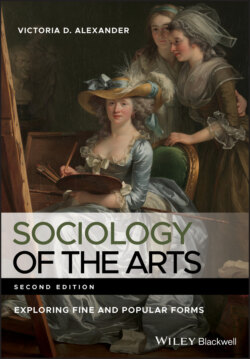Читать книгу Sociology of the Arts - Victoria D. Alexander - Страница 45
Media Effects
ОглавлениеThe media effects literature examines the impact of mass media on society.1 There is no single “media effects” approach, but certain themes are common. For instance, the media are seen as powerful because they are pervasive. Media present models of behavior that citizens (especially children) might emulate, they set the agenda for political and civic debate, and they do these things in a way that may well be biased. Similarly, the media can distort the audience’s views of the world when the information they provide is selective. This literature focuses particularly on the news aspects of the media (e.g. Philo, 1990), but some of its insights draw from, or can be applied to, the fictional media output that is part of the popular arts.2 The theme of crime and violence is strong in the media effects literature, where fictional violence is seen as carrying the potential to increase violence in society (see Case 3.1).
Media effects can occur at two levels, in single individuals or in society as a whole. For instance, advertisements operate both at the individual level (by convincing people to buy particular products or by encouraging in them a desire for certain lifestyles)3 and at the societal (by fostering the ethos of consumerism).4 The literature is divided, then, between work on individual effects and work on societal effects. A second division revolves around studies that focus on the effects of the content of media texts and those that focus on modality. The former looks at what is portrayed in the media, for instance, the effects of stereotypes relating to gender, sexuality, and ethnicity that are embedded into the stories in movies or television shows. The latter suggests, in McLuhan’s (1964) phrase, that “the medium is the message.” In this argument, the characteristics of a medium (print versus televisual, for instance) has an effect over and above the content of the material that is transmitted, and therefore the effects of the medium should be studied. In this argument, books are seen to affect us differently than television (Postman, 2010), and the Internet is said to affect us differently than earlier media (Couch, 1996; Carr, 2008). In this chapter, we will focus on the effect of content rather than modality, looking particularly at cultivation theory and framing effects.
